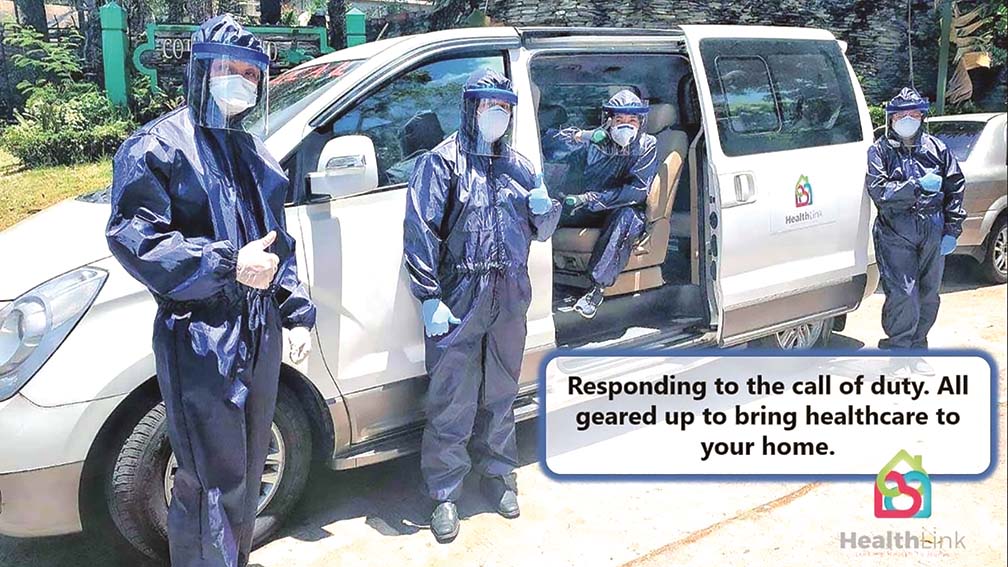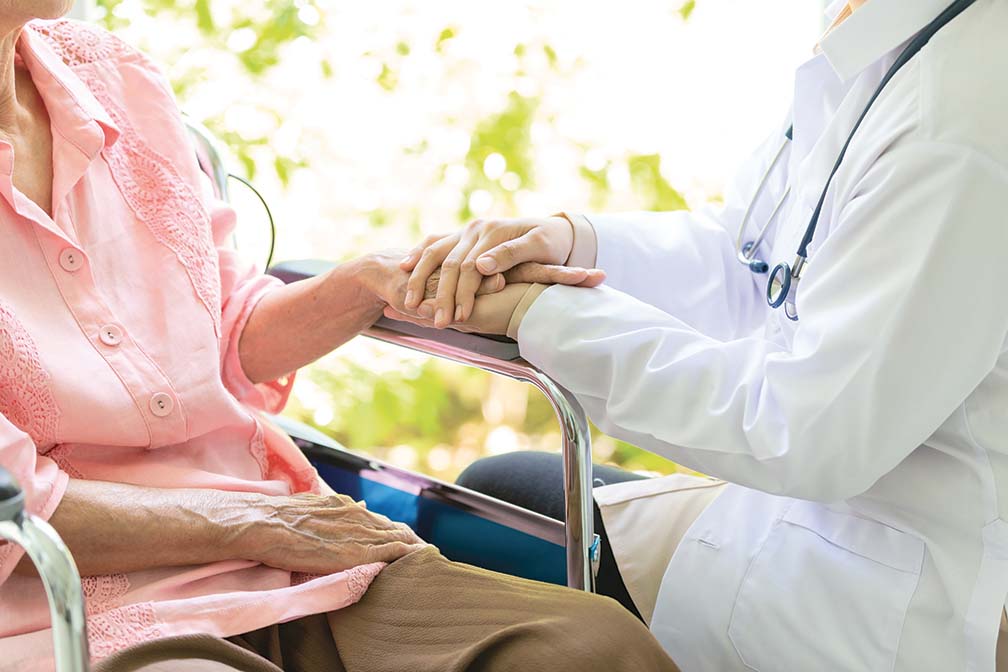Your father just suffered a stroke and you had to rush him to the hospital for emergency care. After spending a few days at the Intensive Care Unit, he was finally transferred to a regular room. After two weeks, you were told that your father can already be discharged in three days. You panic because even if the doctor has already advised you on what to do, you are at a loss how to take care of your father when you get home.
To help you prepare your father from hospital care to being cared for at home, you may want to consider tapping the services of an establishment that provides home care services. Home care helps families and patients—especially those with long term debilitating illness—transition from hospital to home care.
“If you decide to tap our services, our home care doctor will check on the patient two to three days prior to being discharged from the hospital,” said Dr. Sheila Acosta, one of the founders of Home Healthlink Innovations Inc. “This will give our doctors an idea of the extent of the services that the patient would be requiring.”
The home care team would then send out another team to check on the patient’s home and where the patient will be staying during recovery. The team will see what needs to be done in order to come up with a modified hospital room set up. They follow a very strict infection control protocol which will ensure that the patient will be on the road to recovery because the team’s main goal is for the patient to become healthy.
“The patient’s recovery plan is objective-based because there is a set schedule that is followed by the patient to ensure that the goal is achieved,” Dr. Sheila said. “Once the goal is achieved, the patient is reassessed by the homecare team to see if the program needs to be extended or renewed.”

Dr. Sheila, together with her neurosurgeon husband Dr. Renan Acosta and a group of professionals banded together to establish Home Healthlink Innovations with the commitment to provide quality, innovative, and family centered continuing home health care in the country.
Dr. Renan trained in a home health care agency in the United States and saw faster patient recovery as a result of best practices in home health care. This inspired him to apply these practices to his patients, prescribing a Plan of Care. Dr. Sheila, on the other hand, developed a business model that would support the implementation of home health care best practices in the Philippines.
The team also includes Daisy Denham, a Nurse Compliance Officer of the University of Virginia Home Health Systems and Dr. Raul Destura who helped set quality standards that are at par with the US home health care system.

The services being provided by Home Healthlink include a range of home health cares service packages, rehabilitation, Patient Care Mentoring Program, Out-Patient Parenteral Antimicrobial Therapy Program, Specialists Home Visits and Home Visit Procedures like immunization, catheter care/change, ostomy and wound care, among others.
Other services include the rental or purchase of durable medical equipment, home health environment enhancement and ancillary laboratory procedures.
“In the Philippines, the family plays an important role in the recovery of a patient so we make it a point to train the patient’s caregiver so that they are not totally dependent on the home care team,” Dr. Renan said. “This will also prove to be more economical in the long run because once the objective of the homecare service is achieved, the homecare team will gradually pullout.”
He added that he also made it a point to educate patients and their family about the results of their laboratory tests so that they will know how to deal with them in the future.
The enhanced community quarantine brought about a lot of challenges and this forced Healthlink to innovate and to make sure that their homecare teams are fully protected when they make home visits.
“We experienced a surge in home visits as patients were afraid to go to the hospital for fear of getting the COVID-19 virus,” Dr. Sheila said. “We also received a lot of requests for patients’ blood to be extracted and for vaccines to be administered at home.”
She added that at one point, they were also giving free online consultations in order to help patients decide whether they had to go to the hospital to have themselves admitted.
“Probably one of my most memorable experiences was when a family of a patient called us to check on their patient who was already in his 90s,” Dr. Sheila related. “The family did not want to send the patient to the hospital any more because they know that they might not be able to see the patient again if he dies there.”
With this experience, Dr. Sheila is thinking of including end of life assistance for patients and their families. According to the United States National Institute on Aging, end of life care means care that helps or soothes a person who is dying. The goals are to prevent or relieve suffering as much as possible and improve quality of life while respecting the dying person’s wishes.
“We initially did not want to provide end of life assistance but with our experience during the lockdown, we are seriously considering adding this to our services.” Dr. Sheila said.
Home Healthlink was scheduled to open a training facility for home care specialists so that they would always have a ready team to deploy to their home care patients.
The plan had to be put on hold because of the lockdown.
“We still have plans of putting up the training facility,” Dr. Sheila said. “We are trying to see if we can convert some of the modules in order to make them available online.”


